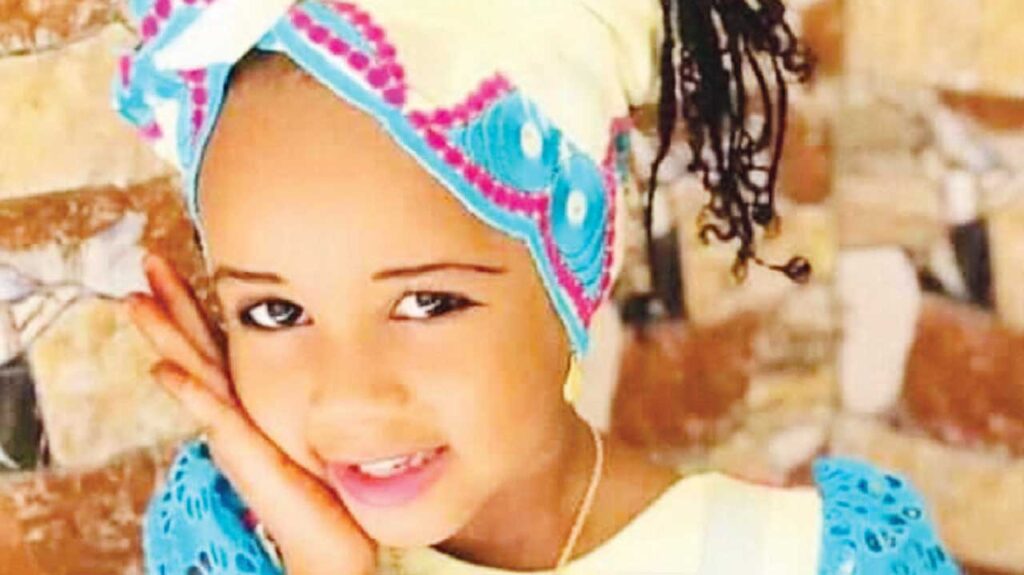Three suspects in the murder case of Hanifa Abubakar have denied killing the five-years-old girl murdered and buried in a shallow grave at her school premise in Kano.
The suspects who rejected their confessional statements, pleaded not guilty to four out of five fresh charges slammed on them by Kano State government.
Appearing before Justice Usman Na’aba of Kano State High court yesterday, the accused persons, Abdulmaliq Mohammad Tanko, Hashimu Isiyaku and Fatima Jibrin denied commission of culpable homicide; attempt to commit kidnapping, kidnapping and abatement to commit an offence in the criminal charges.
Although, the primary suspect, Tanko and the second defendant Isiyaku pleaded guilty to criminal conspiracy, which is the last count, the third defendant, Fatima Jibrin also denied knowledge of the last count too.
The Attorney General and Commissioner for Justice, Kano State, Abdullahi Lawan, who led the prosecution team earlier notified the court of the charges, list of witnesses and summary of evidence in line with section 121 and 126 (b) of the Administration of Criminal Justice Law 2019.
Responding, the defence counsel, who is also the deputy director, Legal Aid Council of Nigeria, Kano office, M.L Usman raised no objection to the prosecution’s application to read the counts.
Consequently, Lawan requested for an adjourn date when the prosecution will present evidence and witnesses to prove the charges.
Lawan had told the court that four witnesses would be presented with possibility of more to support the evidences before the court.
However, Usman who cited section 36 (b) of the 1999 Constitution as amended, urged the court to afford his clients equitable opportunity for fair hearing and expressed readiness for accelerated hearing on the matter.
Justice Na’aba adjourned the case to second and third of March, 2022 for hearing and ordered the suspects to be remanded at Kano Correctional Centre.
Source: The Guardian
